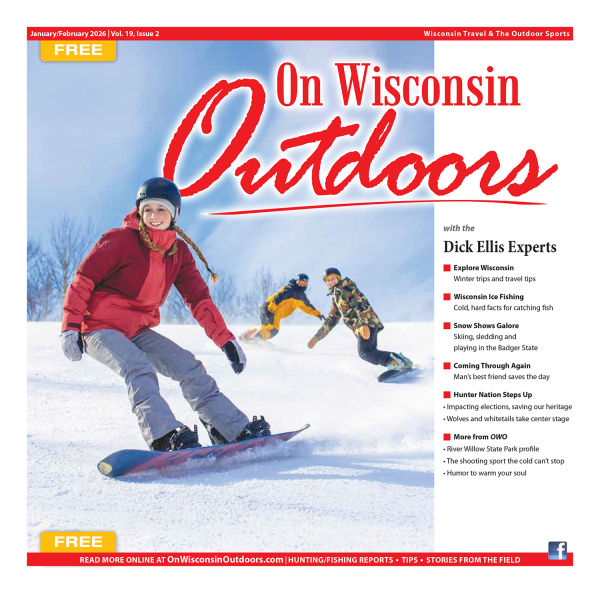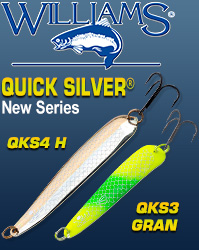DNR sets Ashland public hearing for lake trout emergency rule
ASHLAND, Wis. -- A public hearing on an emergency rule to support continued recovery of lake trout populations in Lake Superior will be held by the Wisconsin Department of Natural Resources Tuesday Feb. 23 starting at 5 p.m. at the Northern Great Lakes Visitor Center in Ashland.
The public hearing will cover the 2015-16 emergency rule adopted by the Natural Resources Board at its December meeting as well as two proposed 60-day extensions to cover the season through September 30. The rule, which includes a daily bag limit of three lake trout in key recreational areas, was developed through extensive public input including an online survey, two public meetings this fall as well as written comments, said Terry Margenau, DNR Lake Superior fisheries supervisor.
The emergency rule is designed to preserve a sustainable lake trout harvest in the Wisconsin waters of Lake Superior and addresses both commercial and recreational harvest limits. Population assessments over the last six to eight years indicate a decline in lake trout abundance. Lake trout are capable of living in excess of 40 years and do not reach sexual maturity until they are eight to 10 years of age, so restoration efforts must span multiple years.
The emergency rule establishes a recreational daily harvest limit east of Bark Point (WI-2) at two fish between 20 and 25 inches and one fish greater than 40 inches. Throughout the open harvest season in these waters, if the recreational lake trout harvest reaches 7,350 or 75 percent of the allowable recreational harvest of 9,800 fish, the fishery will transition to catch and release only for the remainder of the season, which ends Sept. 30.
For waters west of Bark Point (WI-1), the three-fish total daily bag limit includes a 15 inch minimum size limit and only one fish that is greater than 25 inches. Bag limits in the waters west of Bark Point will not be affected by the 75 percent trigger.
The rule revises harvests for commercial fishers and prohibits previously allowed fishing in the Gull Island refuge. However, because of agreements among the parties to the Lake Superior Fishing Agreement, the rule also removes restrictions from the Hagen's Beach area, opening this area to commercial fishing between June 1 and Aug. 31, 2016.
In addition, the rule separates lake trout from other trout species for clarification. The change will allow sport anglers to harvest five trout such as brown trout or splake in addition to their lake trout bag.
"Through natural reproduction and stocking efforts, the waters of Lake Superior continue to support a plentiful and diverse fishery," Margenau said. "Brown trout, splake, coho salmon, as well as coolwater species such as walleye, perch and northern pike all contribute. We want to encourage anglers to take advantage of these opportunities in addition to pursuing lake trout."
The upcoming hearing will focus on the need to extend the emergency rule beyond the initial 150 days running through early June, to cover the entire lake trout season, which runs through Sept. 30. The hearing will be held at the Northern Great Lakes Visitor Center, 29270 Hwy G in Ashland.
A short summary presentation will be followed by an opportunity for citizens to provide oral and written comments. In addition, written comments may be submitted until Feb. 23 to: Terry L. Margenau, Lake Superior fisheries supervisor, Wisconsin Department of Natural Resources, P.O. Box 589, 141 S. Third St. Bayfield, WI 54814; or email to terry.margenau@wisconsin.gov.
For more information about the hearing or on management of the Lake Superior fishery, search the DNR website, dnr.wi.gov, for "Lake Superior fisheries management."









